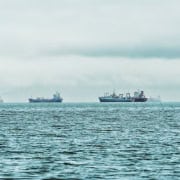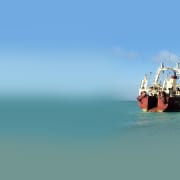|
Getting your Trinity Audio player ready...
|
Image: BORGEN Magazine
It’s been a decade since Samherji’s former operations director Jóhannes Stefánsson quit his job at the Namibian division of the Icelandic fishing company, to expose what is now known as the Fishrot corruption scandal.
Stefánsson, who admits that he was part of the mismanagement until his conscience got the better of him, left the company in 2014 and two years later leaked 30 000 documents to WikiLeaks, who published them as the Fishrot Files. The documents and e-mails provided a treasure trove of information for the Al Jazeera investigators who took the case on, and they broke the story in 2019.
The Fishrot Files revealed how Samherji allegedly secured access to Namibian horse mackerel quotas by dishing out millions of dollars in bribes to Cabinet ministers and businessmen between 2012 and 2018. The company then moved its profits out of the country, depriving Namibia of valuable tax revenue.
Justice has been long in coming. While arrests were made, including those of high-profile politicians, the Fishrot corruption trial has yet to get fully under way. Among other delays, in December 2023 one of the accused, Nigel van Wyk, filed an application for acting judge Moses Chinhengo to recuse himself. The recusal hearing took place on 1 March 2024 and judgment is expected by 12 March, at the latest.
Bleak future
Meanwhile, five years later, there is still no justice for the workers who were affected by Fishrot, says Namibia’s Institute for Public Policy and Research (IPPR) in a new report released in March 2024. Titled We are the Ones that Suffered the Most: The human rights impacts of the Fishrot corruption scandal on Namibian fisheries workers, the report was produced in partnership with the British High Commission in Windhoek.
The organisation focused the report on the voices of the victims, with the hope that their personal accounts will increase the pressure on Fishrot players to begin with long-overdue remediation and restitution. “Thirteen Namibian fishing industry workers provide a human voice to the devastating impact of corruption by detailing their struggles to secure new employment, maintain basic living standards and participate meaningfully in societal activities.”
The report, says IPPR, recognises the importance of using victim-centred approaches to campaigning against corruption and for reparations, because “victims of corrupt practices are often not identified and not heard”.
The 13 case studies – a dry, emotionless term which doesn’t begin to encapsulate their struggles – reveal the devastating and destructive impact that the Fishrot scandal has had on their lives. Men and women alike, their ages range from the 30s up to the 50s and all are now living a life of intense struggle they never expected.
It is heart-breaking to read words like “That time my life was so good”, from a fisherman who lost his job because there were suddenly no quotas for his company, these having been diverted to Samherji. He has yet to find another job and cannot afford to give his Grade 11 son better prospects and further education, or even get married as he wants to, “because there’s no money”.
His company, Namsov Fishing Enterprises, had to let at least 1 000 workers go.
“When you get paid you can help someone,” said another interviewee, adding that now he is in the unenviable position of needing help from others. “They will help us because we helped them before. Some can even buy food for you.”
Most of the interviewees survive these days on a monthly stipend of N$4 000, an arrangement between the Ministry of Fisheries and Marine Resources and the various fishing companies, which involves the distribution of quotas from which to pay the unemployed former fishermen.
None of them have been able to lift themselves out of their grim situation. “Sometimes I go to the road to Swakop(mund), just standing there,” said one. “Sometimes I go to the sea, in the middle of the night, just standing there, thinking about my life.”
Some have sold their belongings to get by, and others, unable to support their families, have had to send wives and children away to live with relatives. The choice between buying the most basic of clothes or buying food is a reality. They cannot send off deceased relatives in the manner that tradition demands. Partly built houses stand derelict, as empty as the dreams that once were.
“Even people who used to laugh with you no longer come to you. Who will come to you when you have nothing? There’s no more sitting, talking, laughing, enjoying. There’s nothing.”
All of them worry about the future. The knock-on effect is massive for the families and extended families they were previously able to support.
In addition, there is now an added strain on housing and sewerage systems in Walvis Bay, which supports the thousands of workers who have nowhere else to go.
Time for justice
Forty ex-fisheries workers were interviewed for the report, said IPPR executive director Graham Hopwood at the launch, as well as related people including the children of a few of them, and local politicians. The 13 whose stories are featured are “a representative sample, to try to get across the key messages about the suffering and the exclusion of the workers who were affected by Fishrot went through, and are going through.”
The report is preliminary, Hopwood added, and IPPR hopes to take the research forward on the human rights aspect, as well as produce a separate report dedicated to the economic and reputational damage Namibia suffered because of money laundering and tax evasion.
“The ultimate aim is to build a case for redress, some kind of compensation … that we need to get heard in Iceland.”
IPPR partnered with Transparency International Iceland in 2021 to work on the matter and more effectively challenge the status quo. The Namibian organisation is outraged that to date Samherji has callously overlooked the plight of those who bear the brunt of its criminal activities. In this regard it makes two specific demands:
- Samherji must issue a formal acknowledgment and apology for its role in Fishrot, directly addressing affected individuals, communities, and Namibian society at large.
- Samherji must make full redress to directly affected and impacted individuals and communities for the disruption and devastation inflicted on their lives because of Fishrot.
The organisation further calls for the creation of an independent multi-stakeholder Namibian foundation made up of members of the Namibian government, civil society, relevant fishing trade bodies, and fishermen themselves. “This body should be empowered with proper tools to provide transparent and lasting assistance to the victims of corruption.”
Samherji should be a major contributor to the foundation, said Hopwood.
People should not have high expectations at this stage, he added, because it is not easy to get to the point where a company takes responsibility for its actions and makes an offer of restitution.
However, for the former workers who have suffered indignity upon indignity, whose human rights have been violated in the most unacceptable ways, and who “perceive themselves as stuck, not just physically in Walvis Bay, but also at a standstill in their lives because they simply don’t have the means to move forward or in another direction from where they are,” hope is all they have.







